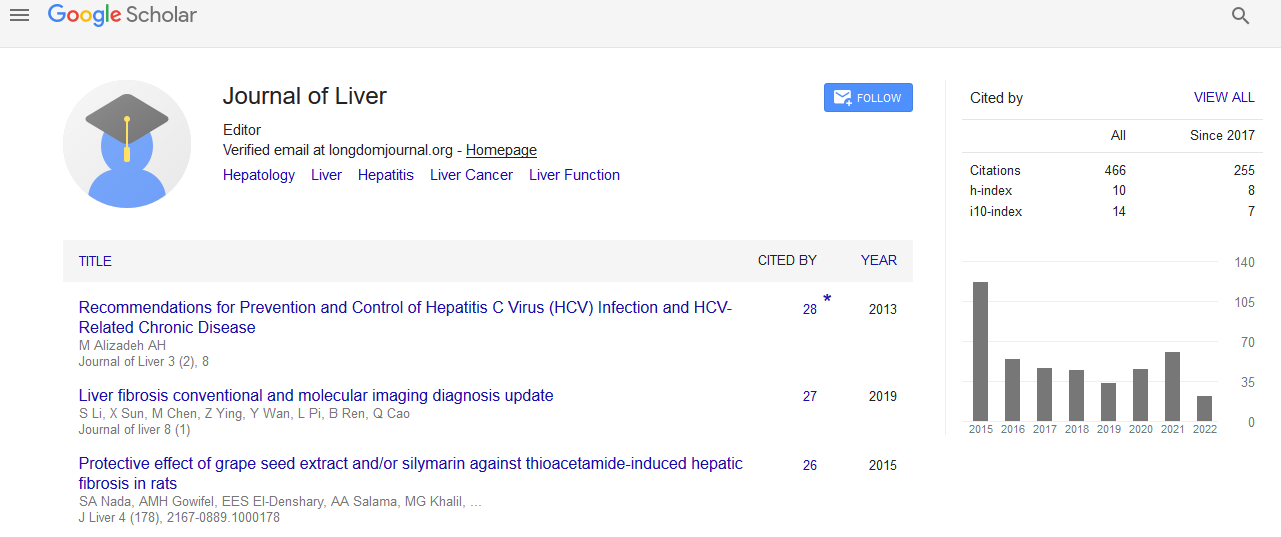PMC/PubMed Indexed Articles
Indexed In
- Open J Gate
- Genamics JournalSeek
- Academic Keys
- RefSeek
- Hamdard University
- EBSCO A-Z
- OCLC- WorldCat
- Publons
- Geneva Foundation for Medical Education and Research
- Google Scholar
Useful Links
Share This Page
Journal Flyer

Open Access Journals
- Agri and Aquaculture
- Biochemistry
- Bioinformatics & Systems Biology
- Business & Management
- Chemistry
- Clinical Sciences
- Engineering
- Food & Nutrition
- General Science
- Genetics & Molecular Biology
- Immunology & Microbiology
- Medical Sciences
- Neuroscience & Psychology
- Nursing & Health Care
- Pharmaceutical Sciences
The cirrhosis microenvironment and Hepatocarcinogenesis
World Congress on Hepatitis
July 20-22, 2015 Orlando, Florida, USA
Sen Yung Hsieh
Scientific Tracks Abstracts: J Liver
Abstract:
Hepatocellular carcinomas (HCC) are unique among all human cancers for its unusual cultivating cirrhosis microenvironment. More than 80% of HCC develop in cirrhotic livers with a propensity to multifoci, unusually high tumor vascularity, high recurrence, high local invasion and relatively systemic tumor dissemination and relatively resistance to cytotoxic chemo and molecular target therapies. These unique features contribute to very dismal outcomes of patients with HCC. Cirrhosis is not only a disease of the liver but also exerts greatly changes in the general physiology of the body which might play significant roles in the development and progression of liver tumors. However, little has been known why HCC prefers developing in cirrhotic liver, how cirrhotic liver fosters HCC development and progression, and how the tumor progression and dissemination are orchestrated by the unique systemic cirrhosis micro environment. This workshop will focus on updating our knowledge on the roles of the cirrhosis local and systemic microenvironment in hepatocarcinogenesis, tumor progression and clinical outcomes.
Biography :
Sen Yung Hsieh has completed his MD from National Yang Ming University, Taipei, Taiwan and PhD from University of Pennsylvania, PA, USA. He completed his clinical training in Gastroenterology and Hepatology at Chang Gung Memorial Hospital. Currently, he is the Director of the Department of Medical Research and Development, Director of the Clinical Proteomics Center, and Professor of Gastroenterology and Hepatology, Chang Gung Memorial Hospital, Taoyuan, Taiwan. He has published many papers in reputed journals including Hepatology, J Hepatology, Mol Cell Proteomics, and Proc Natl Acad Sci, USA and has been serving as an Editorial Board Member of many reputed journals.

